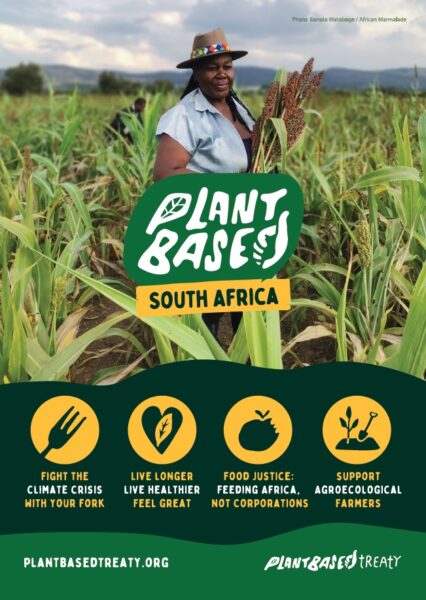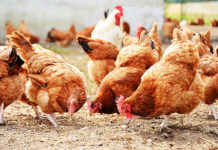For the subscribers of Farmers Review Africa, a publication dedicated to navigating the complexities of modern agriculture, sustainability, and agri-economics, the concept of a Plant Based Treaty (PBT) warrants serious consideration. The Treaty is a global initiative aiming to position food systems at the forefront of the fight against the climate crisis, acting as a direct companion to the UNFCCC Paris Agreement. Given that African agriculture is the crucial sustenance of livelihoods for 70% of the continent’s population and contributes approximately 30% of its GDP, this framework speaks directly to the dual challenges of building resilience and driving inclusive economic growth.
Africa is currently grappling with a “triple planetary crisis” involving biodiversity loss, climate change, and pollution, compounded by the growing threat of desertification. In this context, transforming food production and consumption patterns is not merely an environmental concern, but a strategic imperative for long-term prosperity and achieving the goals outlined in Agenda 2063. The PBT offers a structured, three-pillared approach – Relinquish, Redirect, and Restore – that aligns closely with the continent’s urgent need for climate-smart, equitable, and sustainable agricultural policies.
The Three Pillars of Transformation
The Plant Based Treaty asserts that tackling fossil fuels alone is insufficient to halt runaway global warming, biodiversity loss, extensive deforestation, and severe soil degradation, all of which are exacerbated by current food systems. The Treaty’s proponents highlight that animal-based food production utilises more than three-quarters of the human-appropriated agricultural land surface globally while yielding only 17% of total calories, placing an unsustainable burden on the planet.
The three core principles of the PBT are:
- Relinquish:This mandates no expansion of animal agriculture into critical ecosystems, preventing degradation or deforestation for livestock farming.
- Redirect:This requires actively transitioning away from animal-based food systems to plant-based systems, promoting a shift to healthy, sustainable diets through public education and redirecting harmful subsidies and taxation.
- Restore:This focuses on actively restoring key ecosystems, reforesting, and rewilding landscapes to enhance carbon sinks.
For the African agricultural sector, these principles provide a framework for urgently needed structural reforms aimed at increasing food security and building climate resilience.
Relinquish and Redirect: Addressing Harmful Subsidies and Industrial Expansion
The principle of Redirect is highly relevant to African agri-economics, particularly concerning government funding and market fairness. Currently, agriculture receives massive subsidies globally, second only to fossil fuels. In Africa, however, governments often channel significant portions of public agricultural budgets toward input subsidies that primarily benefit large-scale or industrial producers, often overlooking the smallholder farmers who provide the majority of the continent’s food.
The PBT’s core economic call is to phase out harmful agricultural subsidies that fund industrial livestock expansion. This is particularly pertinent in South Africa, where there is high industry concentration, with ten feedlots reportedly producing about 70% of the country’s beef. The beef sector is a significant environmental factor, accounting for 64.5% of direct livestock emissions in South Africa. Furthermore, the industry lobby and government masterplans often push for the growth of the livestock sector, despite the associated climate and environmental risks.
The PBT champions the redirection of these public funds towards more humane and sustainable farming systems, such as agroecology. This shift is viewed as essential for promoting inclusive growth and strengthening food security. As World Animal Protection urges, African leaders must integrate subsidy reform into their climate commitments (Nationally Determined Contributions – NDCs) to align with global biodiversity frameworks.
This redirection is not just theoretical; real-world African solutions exist. For instance, integrated farming systems in Kenya, combining crops, bees, chickens, goats, and cattle, demonstrate that agroecological systems can deliver both profitability and sustainability while reducing chemical use and improving animal welfare. Supporting this agroecological shift can safeguard livelihoods, create decent work, and ensure ecological integrity across the food system, which are crucial components of a “Just Transition” currently being advocated for in South Africa.
Leveraging Africa’s Plant-Based Heritage
The Plant Based Treaty’s focus on a shift to plant-based diets resonates strongly with Africa’s existing food traditions and its environmental realities. Traditional diets across much of Africa are inherently plant-based, driven historically by cultural, ethical, or economic factors.
Promoting plant-forward diets offers a massive opportunity to address the continent’s “double burden of malnutrition,” where hunger and undernutrition persist alongside rising rates of diet-related Non-Communicable Diseases (NCDs) like obesity and diabetes. Plant-based diets, which are typically richer in fibre, vitamins, and phytonutrients, are associated with a reduced risk of such chronic diseases.
Crucially, focusing on indigenous African crops offers a path to genuine resilience. Plants such as pearl millet and sorghum (cereals rich in protein and starch), and pulses like cowpea and Bambara groundnut (an indigenous, underutilized legume species widely produced in drier areas), are invaluable. These indigenous crops are often climate-smart, demonstrating resistance to the drought, heat, and salinity conditions that are becoming increasingly frequent due to climate change. By encouraging the cultivation and consumption of these local varieties, Africa can simultaneously advance food security (incl seed autonomy), promote better health outcomes, and preserve cultural heritage.
However, the policy framework needs strengthening. While the benefits of plant-based diets in terms of lower environmental impact are recognised globally, only a few of the twelve African countries that currently have Food-Based Dietary Guidelines (FBDGs) specifically refer to sustainability. Researchers are urging governments to expand and update these guidelines to champion the rich variety of locally available, nutrient-dense plant-based foods that are key to Africa’s future.
Restore and the Just Transition
The final pillar of the PBT, Restore, emphasises re-wilding and ecosystem restoration. This links directly to the African Union’s commitment to protecting its unique natural heritage and biodiversity, recognising that these resources sustain food systems and climate resilience for over a billion people.
Achieving this large-scale restoration requires ensuring a Just Transition for farmers and workers who might be affected by a shift away from animal agriculture. This means supporting them through training, innovation, and social protection. The transition must also address the deep inequalities within the food system, particularly concerning women, who shoulder the burden of unpaid care work, food production, and nutrition management amidst climate shocks. Policy should shift away from viewing women as mere agricultural inputs towards recognising them as key agents in climate adaptation and transformation.
Policy experts emphasise that achieving food system resilience and ecological integrity requires integrated governance that moves beyond merely focusing on agriculture, encompassing consumption, nutrition, and the economics that shape outcomes. This transformative work is already being pioneered by organisations across the continent, focusing on urban food systems, leveraging indigenous knowledge, and accelerating youth-led agri-food businesses.
A Platform for Innovation and Growth
For agricultural professionals, the Plant Based Treaty should be viewed not as a threat, but as a framework for unlocking significant investment and innovation opportunities. Transforming Africa’s agricultural sector could advance up to half of the UN’s Sustainable Development Goals (SDGs).
Currently, while there is growing interest in plant-based products among young African consumers, uptake in developing nations is sometimes slower due to high food insecurity and meat’s perceived role as the main protein source or a symbol of wealth. However, youth are emerging as primary drivers of change, willing to spend more on products meeting sustainability requirements. Innovation in plant-based food production – such as creating meat alternatives or developing nutrient-dense products from indigenous grains – is booming globally and presents a viable opportunity for sustainable development.
The adaptation of the PBT provides a powerful policy tool for African governments and institutions to solidify their long-term commitment to sustainability. By embracing policies that align with the PBT principles – redirecting subsidies, promoting climate-smart indigenous crops, and integrating social and ecological justice – African farmers and agri-businesses can secure the investment and policy stability necessary to turn climate uncertainty into profitable and resilient yields. The future of African agriculture hinges on adopting innovative, low-impact production systems that prioritise the health of the planet and its people, making the PBT framework a critical topic for debate and engagement.
The Plant Based Treaty acts as a blueprint for agricultural reform, akin to a farmer choosing resilient, heritage seeds for the coming unpredictable season. It acknowledges that the old, resource-intensive crops (industrial animal agriculture) are vulnerable to climate shock, and instead advocates for planting and nurturing new, scientifically proven, and traditionally resilient systems (plant-based and agroecological approaches) to ensure a secure and prosperous harvest for the future.
For more information: ingrid@plantbasedtreaty.org
To endorse: https://plantbasedtreaty.org/endorse/
To donate: https://plantbasedtreaty.org/donate/








